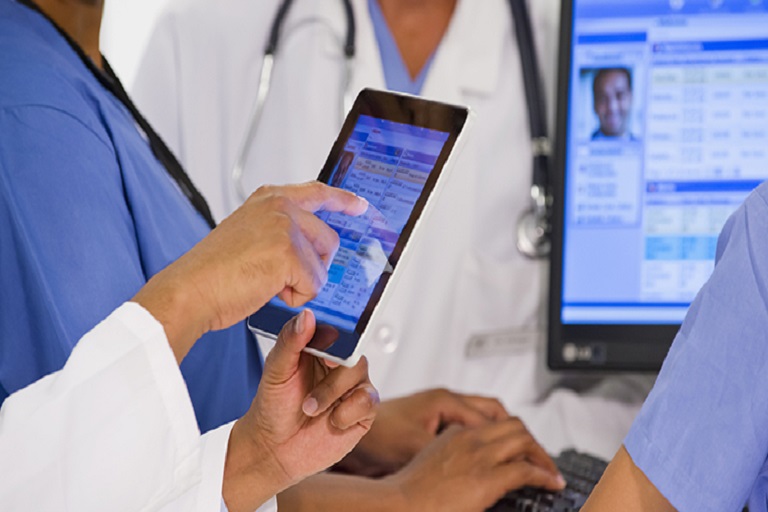Machine Learning Between 12 to 18 million Americans every year will experience some sort of diagnostic error,” said Paul Cerrato, a journalist and researcher. “So the question is: Why such a huge number? And what can we do better in terms of reinventing the tools so they catch these conditions more effectively?” Cerrato is co-author, alongside Dr. John Halamka, newly minted president of Mayo Clinic Platform, of the new HIMSS Book Series edition, Reinventing Clinical Decision Support: Data Analytics, Artificial Intelligence, and Diagnostic Reasoning.
At HIMSS20, the two of them will discuss the book, and the bigger picture around CDS tools that are fast being transformed by the advent of artificial intelligence, machine learning and big data analytics.
Big things are happening in the space, with leading-edge vendors such as Dynamed, UpToDate and VisualDx pushing the envelope of what can be accomplished for evidence-based decision support.
Still, we’re in the early days of this AI revolution, said Cerrato, and “here’s a lot more that can be done with machine learning and AI.”
In their HIMSS20 presentation, he and Halamka “talk about some of the diagnostic tools that have now come to market,” said Cerrato, such as IDx-DR, which in 2018 became the first autonomous AI tech to gain FDA approval for the screening of diabetic retinopathy.
Since then, The American Diabetes Association has said autonomous AI meets its own standards of care. But despite the vote of confidence in tools such as IDx-DR, which was rolled out at some health systems just months after its approval, not all AI-based decision decision support is created equal.
“The challenge is there’s a lot of hype out there,” said Cerrato. “And some of the tools are really not ready for prime time. They’re at the proof of concept stage, but don’t have enough evidence to prove they’re useful in the trenches.”
At HIMSS20, he said, he and Halamka will “talk about some of the obstacles and how to distinguish between the good stuff and the hype.”
They’ll also discuss some ways to improve clinicians’ comfort level with these leading edge technologies. As some other HIMSS20 presenters will also be discussing in Orlando, the opaque inscrutability of AI’s “black box” can present a real obstacle to staff uptake, given many providers’ mistrust about the algorithms powering these tools’ decision-making.
“If you look under the hood so to speak, and you look at these mind bending mathematical equations and the advance statistics that are needed to create these neural networks and random forest analyses, they really are beyond comprehension of the average physician,” said Cerrato
“So what often happens is they say, ‘I don’t believe it. I can’t say that it’s true.’ But what they’re often really saying is they don’t understand it.” Targeted education can help docs “understand these complicated algorithms in relatively plain English.” Another must-have on the way to wider adoption: “The data sets have to be better. They have to be more representative. Some of the better algorithms are using two or three different data sets.”
During their presentation, Cerrato will offer an overview of recent research and CDS trends, while Halamka will discuss real-world examples from his long tenure as CIO at Beth Israel Deaconess Medical Center and his first few months at Mayo Clinic, where he is tasked with leading its Platform initiative, a portfolio of new digital initiatives aimed at transforming care delivery using artificial intelligence and other emerging technology. Indeed, Halamka sees AI, when properly deployed, as a key enabler to more effective CDS.
“Many diagnostic aids are now available to help address the epidemic of diagnostic errors we now face,” he explained on his blog. “Clinical decision support systems, for example, are designed to help practitioners stay up to date on new developments without requiring them to spend their entire day reading the medical literature. Some CDS systems also offer symptom finders, decision trees, and other advanced features.
“But today’s digital tools only scratch the surface,” said Halamka. “Incorporating newly developed algorithms that take advantage of machine learning, neural networks, and a variety of other types of artificial intelligence can help address many of the shortcomings of human intelligence.”


































